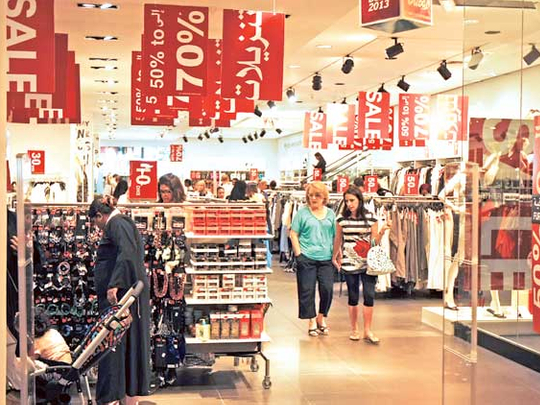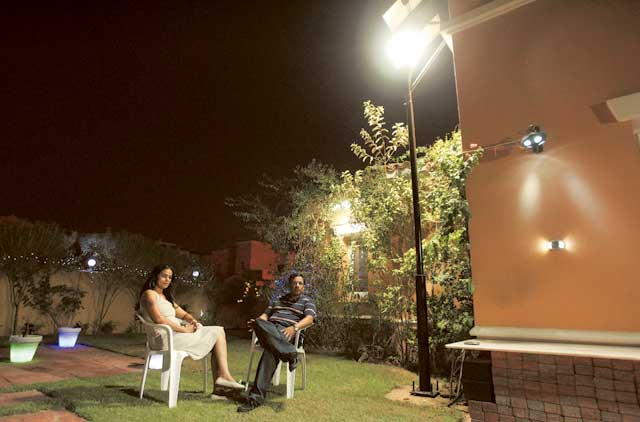
Dubai: It’s always good to have some money stashed away, not only for a house purchase or holiday trip in the future, but also for unexpected rainy days. Having enough cash set aside for emergencies will make households less vulnerable to what financial advisors call “income shocks”.
Without a rainy day fund, anyone can easily rack up copious amounts of debt or miss credit card payments, which can easily set anyone back expensive bank fees. It’s an unpleasant situation people don’t want to find themselves in, yet a great number of them tend to neglect the fundamental rule.
The financial safety net is supposed to ensure families and individuals will have money to pay for their rent, food and other necessities when they are suddenly out of job, or take care of the medical bills when someone in the family lands in the hospital. Financial advisers recommend the amount set aside should be at least equivalent to three months’ salary.
However, over a third of 1,000 households in the UK only have £250 (Dh1,502) or less set aside as a financial safety net, according to a new research from HSBC. Given that monthly outgoings average £1,500, these people are likely to last five days before money runs out.
What is more alarming is that a quarter (25 per cent) have no savings at all, and this figure is rising from 19 per cent in the previous survey in 2012. “The findings indicate that the proportion of [respondents] who are financially unprepared should they face any unexpected expenses or loss of income has risen steadily over the past year, with an extra [one in ten] households admitting to savings of £250 or less,” said Oliver Cook, head of savings at HSBC.
Getting into the habit of saving is the key to having sufficient emergency funds. However, this is a challenge for a lot of people. James Thomas, regional director at Acuma, says a great way to start is working out where money is being spent. “To do that, get a bowl and save all of your receipts and analyse your expenditure. Once you know this, you can then start to see where you can save money and begin with the process of saving. Even if it is only a few dirhams in the beginning, it will accumulate and build up,” says Thomas.
Ashok Sardana, managing director at the Continental Group, says it is always a good trick to give oneself a “forced pay cut”. For example, if the monthly income is Dh10,000, expenses should not go beyond Dh9,000. Similarly, if the salary is only Dh5,000, one must find a way to live on Dh4,500 maximum.
“Think of it as a forced pay cut and set that amount aside as soon as you get paid,” he advises.
“Once you have saved and accumulated money, you will find that it gets easier and you will also have more options to invest your savings. Also, your children see you and follow your example, talk to them about it and get them into the savings mindset as well,” he adds.
Once consumers get into the habit of saving, the next step would be deciding where to keep the money. Should the cash be hidden under the mattress, in a cookie jar, bank account or investment scheme? Rainy day funds should be easily accessible during emergencies, so the safest and most convenient place of storage is a savings account.
When choosing the right account, it is wise to consider the interest rate. Many banks offer good rates only if a certain amount is maintained.
“The biggest advantage of a savings account is that it’s completely liquid and you can obtain your finances instantly. The downside of savings accounts is that the interest earned on the money deposited in these accounts is low and there is a risk of reduction in the real value of your money,” says Sardana.
For adventurous savers, they may consider money markets, mutual funds and stocks, which all can provide higher returns than a bank account. But many financial advisors don’t recommend these for rainy day funds, as some of them tend to be less liquid and carry elements of risk.
“As this is a cash reserve, it needs to be easily accessible, so the best place for this is a simple bank account. This way, it can be accessed when necessary, and at the same time, it is in a safe place. It will not earn a great deal of interest, but this is not the main aim of this account,” says Thomas.
He says it is not wise to invest the emergency fund into the stock market because there is no absolute guarantee the money will maintain or increase in value. “While access is not normally an issue, the value can vary wildly depending on where it is invested, and you could suddenly find your emergency fund worth a lot less than you expected when you most need it,” Thomas points out.
Although the real estate sector looks like it’s a very lucrative market for landlords, savers are advised to think twice before using rainy day funds in buying a villa, apartment or house and lot. “Not only can the [property] value fluctuate, it can be inaccessible, too. Not to mention you normally need a lot more than a few months’ salary to purchase a property,” says Thomas.







